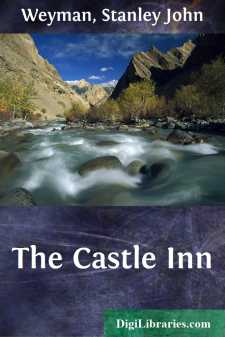Categories
- Antiques & Collectibles 13
- Architecture 36
- Art 48
- Bibles 22
- Biography & Autobiography 813
- Body, Mind & Spirit 142
- Business & Economics 28
- Children's Books 14
- Children's Fiction 11
- Computers 4
- Cooking 94
- Crafts & Hobbies 4
- Drama 346
- Education 46
- Family & Relationships 57
- Fiction 11828
- Games 19
- Gardening 17
- Health & Fitness 34
- History 1377
- House & Home 1
- Humor 147
- Juvenile Fiction 1873
- Juvenile Nonfiction 202
- Language Arts & Disciplines 88
- Law 16
- Literary Collections 686
- Literary Criticism 179
- Mathematics 13
- Medical 41
- Music 40
- Nature 179
- Non-Classifiable 1768
- Performing Arts 7
- Periodicals 1453
- Philosophy 64
- Photography 2
- Poetry 896
- Political Science 203
- Psychology 42
- Reference 154
- Religion 513
- Science 126
- Self-Help 84
- Social Science 81
- Sports & Recreation 34
- Study Aids 3
- Technology & Engineering 59
- Transportation 23
- Travel 463
- True Crime 29
The Wild Geese
Description:
Excerpt
CHAPTER
ON BOARD THE "CORMORANT" SLOOP
Midway in that period of Ireland's history during which, according to historians, the distressful country had none—to be more precise, on a spring morning early in the eighteenth century, and the reign of George the First, a sloop of about seventy tons burthen was beating up Dingle Bay, in the teeth of a stiff easterly breeze. The sun was two hours high, and the grey expanse of the bay was flecked with white horses hurrying seaward in haste to leap upon the Blasquets, or to disport themselves in the field of ocean. From the heaving deck of the vessel the mountains that shall not be removed were visible—on the northerly tack Brandon, on the southerly Carntual; the former sunlit, with patches of moss gleaming like emeralds on its breast, the latter dark and melancholy, clothed in the midst of tradition and fancy that in those days garbed so much of Ireland's bog and hill.
The sloop had missed the tide, and, close hauled to the wind, rode deep in the ebb, making little way with each tack. The breeze hummed through the rigging. The man at the helm humped a shoulder to the sting of the spray, and the rest of the crew, seven or eight in number—tarry, pigtailed, outlandish sailor men—crouched under the windward rail. The skipper sat with a companion on a coil of rope on the dry side of the skylight, and at the moment at which our story opens was oblivious alike of the weather and his difficulties. He sat with his eyes fixed on his neighbour, and in those eyes a wondering, fatuous admiration. So might a mortal look if some strange hap brought him face to face with a centaur.
"Never?" he murmured respectfully.
"Never," his companion answered.
"My faith!" Captain Augustin rejoined. He was a cross between a Frenchman and an Irishman. For twenty years he had carried wine to Ireland, and returned laden with wool to Bordeaux or Cadiz. He knew every inlet between Achill Sound and the Head of Kinsale, and was so far a Jacobite that he scorned to pay duty to King George. "Never? My faith!" he repeated, staring, if possible, harder than ever.
"No," said the Colonel. "Under no provocation, thank God!"
"But it's drôle," Captain Augustin rejoined. "It would bother me sorely to know what you do."
"What we all should do," his passenger answered gently. "Our duty, Captain Augustin. Our duty! Doing which we are men indeed. Doing which, we have no more to do, no more to fear, no more to question." And Colonel John Sullivan threw out both his hands, as if to illustrate the freedom from care which followed. "See! it is done!"
"But west of Shannon, where there is no law?" Augustin answered. "Eh, Colonel? And in Kerry, where we'll be, the saints helping, before noon—which is all one with Connaught? No, in Kerry, what with Sullivans, and Mahonies, and O'Beirnes, that wear coats only for a gentleman to tread upon, and would sooner shoot a friend before breakfast than spend the day idle, par ma foi, I'm not seeing what you'll be doing there, Colonel."
"A man may protect himself from violence," the Colonel answered soberly, "and yet do his duty....










